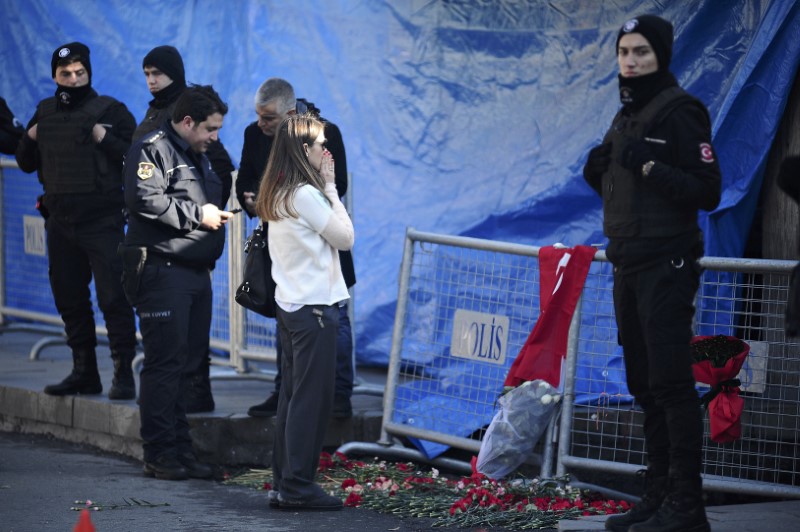
ANKARA (Reuters) – An Islamist gunman, who has confessed to the killing of 39 people at an Istanbul nightclub on New Year’s Day, told a court that he had aimed to kill Christians during his attack, Hurriyet newspaper said on Monday, citing testimony given this weekend.
Abdulgadir Masharipov initially planned to attack the area around Taksim Square but switched to the upscale Reina nightclub due to the heightened security measures around the square, Hurriyet said, without saying how it had obtained the document.
Reuters was not given access to the confidential document.
“I did not take part in any acts before the Reina event. I thought of carrying out an act against Christians on their holiday, to take revenge for their killing acts across the world. My goal was to kill Christians,” he was quoted as saying.
“If I had decided to do so, I would have used a gun and killed the people there (Taksim). There was no entrance to Taksim, it was swarming with police. I changed my mind after that,” Huuriyet quoted him as saying in the court document.
Turkey is a majority Muslim nation. Turks, as well as visitors from several Arab nations, India and Canada, were among those killed in the attack. Victims included a Bollywood film producer, a Turkish waiter, a Lebanese fitness trainer and a Jordanian bar owner.
Islamic State claimed responsibility the day after the attack, saying it was revenge for Turkish military involvement in Syria. Turkey is part of the U.S.-led coalition against Islamic State and launched an incursion into neighboring Syria in August to drive jihadists and Kurdish militia fighters away from its borders.
Masharipov, an Uzbek, acknowledged his membership of Islamic State and said the jihadist group would develop a presence in predominantly non-Muslim countries if it had the power, Hurriyet said.
Masharipov said he and his family had originally planned to travel to Syria from Uzbekistan, but stayed in Turkey because they were unable to do so. He said he had not taken part in any meetings or phone calls with the group while in Turkey.
He was caught in a police raid in Istanbul on Jan. 16 and was formally charged with membership of an armed terrorist group, multiple counts of murder, possession of heavy weapons and attempting to overturn the constitutional order, the state-run Anadolu news agency said.
In his testimony this weekend, he told officials he would prefer the death penalty as a sentence, and said he did not regret his actions, which he believed were not targeting Turkey, but rather were acts of revenge.
“It would be better if a death penalty was ruled. I threw the stun grenades after my ammunition had finished, nothing happened. I remained alive, but I had gone to die there,” he said, according to Hurriyet.
Turkey formally abandoned the death penalty in 2002 as part of its European Union accession talks, and its restoration would probably spell the end of Turkey’s talks to join the bloc.
Turkish President Tayyip Erdogan has revived the question of reintroducing the punishment in the wake of a failed July coup, saying he would approve the change if parliament passed it.
“Why do they say I work against Turkey or am against Turkey? I don’t think I did anything against the Turkish republic, I did not do anything against Turkey. I took revenge,” Masharipov was cited as saying.
“I do not regret what I did. I believe I retaliated.”
(Reporting by Tuvan Gumrukcu; Editing by David Dolan and Louise Ireland)




